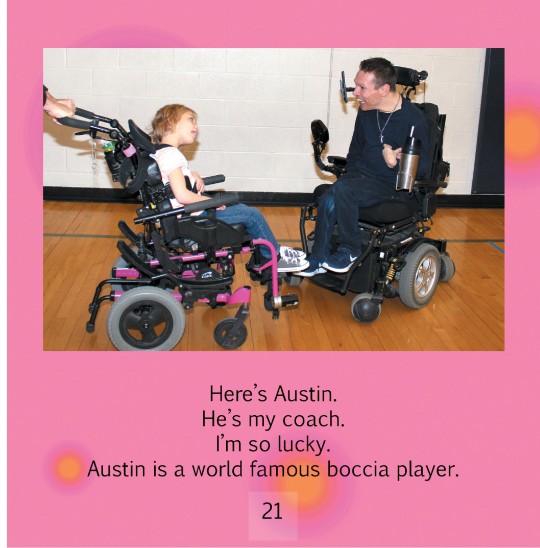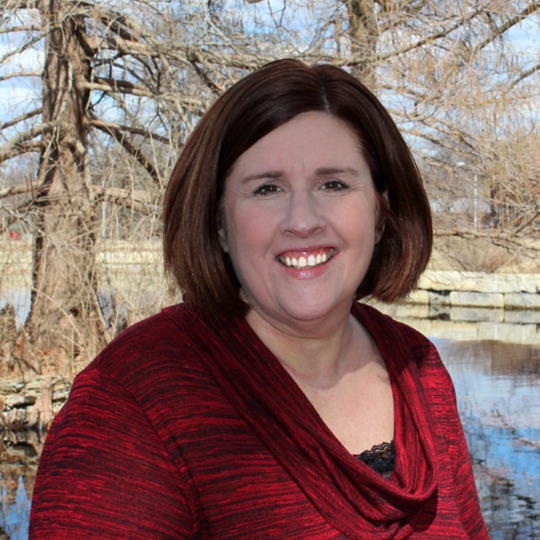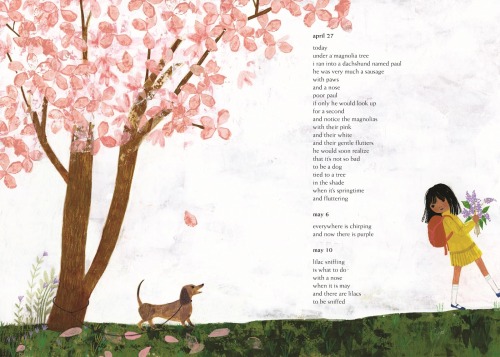Blog
-
Kid Lit Auction Benefits Refugees in Europe
Now through May 2, literary items ranging from novel critiques to author visits are up for auction. Proceeds will support Lifting Hands International. The range of items (and experiences), include novel critiques …
-
2016 Banned Books Week Grants Offered Through Freedom to Read Foundation’s Krug Fund
CHICAGO, IL — For the seventh year, the Freedom to Read Foundation is offering grants to support a wide variety of engaging, provocative and fun events commemorating Banned Books Week. …
-
Diversity, Disability, and Dolls
Contributed by Vera Lynne Stroup-Rentier, Ph.D., Author
Public Law 99-457 passed in 1986, amending the Education of the Handicapped Act and requiring states to provide appropriate and free public education to children with disabilities ages 3 through 5. Shortly after the implementation of this law began in 1991, I was fortunate enough to work with infants, toddlers, and preschoolers in Washington, D.C. As one of the few white women on staff, I learned much about diversity and disability. However, the lessons I learned often left me dismayed about how society represented each and every child. I learned one such lesson when I wanted to find dolls that the children and I could wash together in the water table. I liked this activity because I could talk to children about the different aspects of the dolls, like skin color. I went in search of black dolls for the water table because the children in my class were black and Hispanic. I rarely had a white student in my class. I went to store after store after store looking for dolls. There were white babies everywhere but no black or Hispanic babies. I finally found a catalog I could order them from but could not get over that fact that dolls of other races were not available in stores. These were the same stores my students’ families shopped in every week.

The good news is that over the past 25 years the practice of having a limited diversity of dolls has changed. Now, even Barbie comes in all shapes and sizes! While I do consider this a victory for young girls everywhere, my daughter, who is from India and has a disability, still has a difficult time finding herself represented in children’s literature. Certainly, there are lots of books about girls growing up in today’s society. In fact, many have whole series of books written about them. Most of the time, though, they are white girls growing up in a world with limited colors. My friend Jo and I wanted to change the way my daughter and others like her are able to view themselves in our ever-changing society. We wanted to show children from all walks of life with many different types of disabilities and backgrounds doing the things they love most. This love translated into building on their interests and skills so they can become more self-directed and self-determined over the course of their young lives. We know being self-determined starts to happen way before a teenager turns 18. We encourage you to peel back the pages of a good book and see how it represents you or a child you care about it in a positive way. This same book should embrace the child’s diversity in the context of their family.


Vera Lynne Stroup-Rentier worked in the fields of Early Childhood and Special Education as a teacher for 25 years. She has a PhD in Special Education from the University of Kansas and is currently working at the Kansas State Department of Education. She has co-authored seven children’s books with Jo Meserve Mach for Finding My Way Books. All Finding My Way books are written to honor children with special needs or disabilities by sharing their stories. Their most recent title, ‘OE Wants It To Be Friday,’ features a young girl adopted from Russia who has Cerebral Palsy and uses a communication device. Visit findingmywaybooks.com for more information.
-
Hollins Announces Winners of the Inaugural Margaret Wise Brown Prize in Children’s Literature
The annual award showcases the most distinguished picture book manuscript as selected by a panel of judges. This year’s recipients are Phil Bildner for his book Marvelous Cornelius, and Jane …
-
Lionsgate Acquires Rights to Globally-Renowned Magic Tree House Book Series
SANTA MONICA, CA and VANCOUVER, BC — Continuing to expand its portfolio of brands and franchises, Lionsgate (NYSE:LGF), a premier next generation global content leader, has acquired the rights to …
-
Author Dav Pilkey Gives a New Book to Every Student at 50 Schools Nationwide for Summer Reading
NEW YORK – April 20, 2016 – To help get kids reading more books this summer, bestselling children’s author Dav Pilkey (Captain Underpants and the new Dog Man series) is …
-
National Ambassador Gene Luen Yang’s Reading Without Walls Podcast: Episode 2 with Derek Kirk Kim
Through his platform, “Reading Without Walls,” Yang hopes to inspire readers of all ages to pick up a book outside their comfort zone. In episode two of his podcast, Yang …
-
Arkansas, Massachusetts, and Nebraska Win Disney and First Book “Magic of Storytelling” State Vote
First Book is pleased to announce Arkansas, Massachusetts, and Nebraska as the top three winning states in the “Magic of Storytelling” state vote. A total of 135,000 books will be awarded …
-
A Message from National Ambassador Emeritus Jon Scieszka!
Ever the comedian, Scieszka donned his purple tux and teamed up with our friends at KidLit.TV to bring you this special message about voting. Watch the zany video here and vote now through April …
-
“State of America’s Libraries 2016” Shows Service Transformation to Meet Tech Demands of Library Patrons
CHICAGO, IL – Libraries are not just about what they have for people, but what they do for and with people. With communities still recovering from the Great Recession, academic, …
-
Children’s Book Week 2016 Preview
We have your favorite Children’s Book Week traditions and exciting new events heading your way! Here’s a look at some of the highlights: Bi-Coastal Kickoff: This year’s celebration launches with …
-
One Million Books Sold in The Iron Fey Series by New York Times Bestselling Author Julie Kagawa
New York, NY — Harlequin TEEN™ announced today that New York Times and USA TODAY bestselling author Julie Kagawa’s The Iron Fey series has reached the one-million mark in copies sold …
-
LeVar Burton, Al Roker, Dav Pilkey, Gene Luen Yang, and 200+ Speakers Address Educating Youth and Creating a Nation of Readers in Today’s Digital World
April 19 – 22, 2016 at the George R. Brown Convention Center AUSTIN – Librarians from around the state are preparing for the 2016 TLA Annual Conference, taking place in …
-
Announcing the 2016 Teens’ Top Ten Nominees
The 2016 nominees are: Baker, Chandler. Alive. Disney/Hyperion. Bardugo, Leigh. Six of Crows. Macmillan/Henry Holt & Co. Black, Holly. The Darkest Part of the Forest. Little, Brown & Co. Boecker, …
-
Ransom Riggs, #1 New York Times Bestselling Author of the Miss Peregrine Series, to Publish Tales of the Peculiar On ‘Loop Day’ in September 2016
New York, NY — On September 3, 2016 Penguin Young Readers will celebrate “Loop Day” nationwide with the Saturday publication of TALES OF THE PECULIAR, an illustrated collection of fairy …
-
The CBC Stands in Support of N.C. Bookstores
In a joint statement signed by the ABA, the CBC, the Association of American Publishers, the American Library Association Office for Intellectual Freedom, the Society of Children’s Book Writers and Illustrators, and …
-
Scholastic Launches Storyworks® Jr., the 33rd Classroom Magazine Title
Teachers call for new language-arts resource for Grade 3, following the extraordinary success of Storyworks magazine New York, NY – April 14, 2016 – Reflecting the intense need for highly …
-
Reading Rainbow’s LeVar Burton on the Value of Reading Together
Burton credits his lifelong love of literature with his mother, an English teacher who showed him the community-building power of reading by example. In this world that is dominated by digital …
-
#DrawingDiversity: ‘When Green Becomes Tomatoes: Poems for All Seasons’ illustrations by Julia Morstad


When Green Becomes Tomatoes: Poems for All Seasons by Julie Fogliano, illustrations by Julie Morstad (Roaring Brook Press/Macmillan Children’s Publishing Group, February 2016). All rights reserved. @macmillankids
-
Candlewick Press Announces Acquisition of Jon Scieszka’s DaDa Goose’s Book of Complete Nonsense
SOMERVILLE, MA – Jon Scieszka, expert deconstructor of fairy tales in such contemporary classics as The True Story of the 3 Little Pigs! and The Stinky Cheese Man, will turn …





















